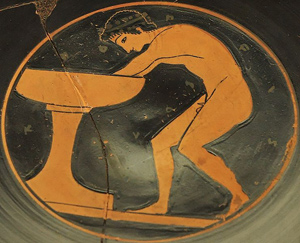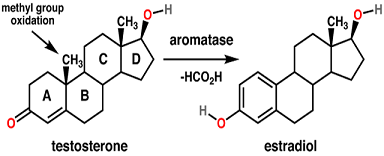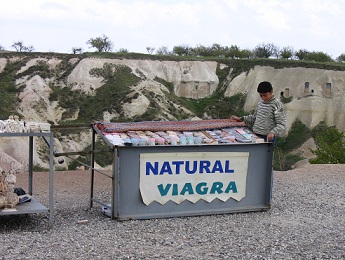The Midlife Crisis
For many years the term male menopause was regarded with derision as yet another silly health obsession and invention of women’s magazines and a figment of imagination and worse ! It was universally believed that only women went through menopause because only they menstruate and experience sudden dramatic changes and fall in the hormone estrogen when the ovaries begin to fail after a certain stage and age ( menopause, taken literally means a pause in menstruation ).
This phenomenon does not occur in men – the testes continues to function all through their life, testosterone levels drops only gradually and some well documented reports show men older than 90 fathering children and it was thought that there was no menopause in men. However, in the last decade or so, that line of thinking has slowly shifted and now no one disputes that men go through several physical and psychological changes at around the age of 50 due to the slow, insidious drain of testosterone.
This is medically termed as PADAM( partial androgen deficiency in ageing males), the consequences of male menopause are only now being unearthed by scientists. The downward march of testosterone levels begins around age 40, falling by about one per cent annually, and resulting in an overall drop of about one third by age 70. Although no one really knows what incites the hormone drain, many experts speculate that it is all in the brain.
However , can Testosterone therapy boost sexual drive, increase muscle mass,solve the mid life crisis and reverse the process of ageing ?

Hormonal Fluctuations
Normally , in the healthy 30ish man, hormonal fluctuations trigger responses from the pituitary gland, a walnut sized organ in the brain. When hormones dip, this gland spews chemical substances that signal hormones to bounce back. As the man ages, something goes missing in this built in biological feedback mechanism and with the falling testosterone levels the pituitary gland no longer send the corrective signals.
Significant waning shows up only around the age of 60 – some 10 years after the average female menopause. Studies show that around 36 per cent of men have levels below average and only a smaller percentage of men ( around 30%) are able to be sexually active after the age of 65.Logically enough the lower overall levels of testosterone in older men result from gradual decrease in the daily production of the hormone as they age. The average 60 year old man produces less testosterone every day than he did when he was say 25 or 35.
Most researchers agree that a chemical change in the body, no matter how slight, will signal some sort of biological changes or emotional impact. But the changes in men are not nearly as dramatic as the changes that are seen in women( who have a much more impressive loss of hormone production during menopause).
Some of the noticeable changes that we get to see in men are ...
=Decrease in sexual desire, arousal and activity. Fewer spontaneous erections during the day time
=Loss of muscle mass, strength, endurance and energy.
=Increase in body fat - this is what is the possible explanation for the middle aged mans paunch or spreading belly!
=Loss of bone mineral density resulting in increased risk of osteoporosis and possibly even loss of height due to shrinking stature .
=Depression, decreased cognitive functioning, poor memory.
=increased risk of cardiovascular disease.
When men enter this phase of life they are worried and scared about their non performance or under performance and the result is that they try out the various supplements like Viagra to help lift their flagging libidos.

Benefits of Testosterone therapy
In 1992, the National Institutes of Health in USA sponsored several studies to investigate whether testosterone therapy can prevent physical ailments and depression in older men. Healthy men were given testosterone either by pill or adhesive patch. Seventy healthy men aged between 65 and 83 with low testosterone levels took part and the results were as follows ...
- There was a 4 kg increase in the muscle mass as opposed to a 3 kg drop in the placebo (An inactive substance or preparation used as a control in an experiment or test to determine the effectiveness of a medicinal drug) group.
- Almost 16 per cent reduction in body fat.
- An 8 per cent increase in the bone density, at the spine and the surrounding area.
- A 12 per cent reduction in the cholesterol levels and a 13 per cent reduction in bad LDL cholesterol with no change in good HDL...
So all the above results are positive and apparently testosterone make men feel better, not just sexually but also in terms of giving them a sense of all round well being. They also began to feel stronger and demonstrated an increased right hand grip strength.
But do these findings all add up to enough reason for men to take hormone replacement therapy? This is an issue that is still being hotly debated by the scientists. For one thing a tie between diminished testosterone and either physical or emotional side effects do not necessarily mean cause and effect. The depression and other middle age crisis that some men go through for example may be psychological rather than hormonal ! And reduced bone density and muscle mass may be due to reduced exercise activity rather than hormonal levels.These are some of the arguments that have been put forward by the critics.
Here I would also like to share a real life incident - Ramesh(name changed) a 56 year old insurance officer had been unable to perform and he and his wife had all but forgotten that they had once had a robust sex life.Understandably he was quite excited when Viagra made its dramatic entry into our country.He thought that now at last he had found a solution to his problem. Ramesh and his wife decided to take a few days off during Diwali and he organised a quite getaway to Ooty, where he thought they could recapture the mood of romance and love, and, just so as to make sure that everything went according to plan, he slipped the two precious Viagra tablets that he had bought in the black market without prescription.
He was all set to make up for years of deprivation and was in a great holiday mood.Unfortunately, Ramesh's dream holiday of sex and romance never materialised either because the pills din't work or simply because sex had lost much of its charm.He did not feel even the merest tingle of desire, leave alone a spontaneous erection!
Ramesh's situation is not unique since most middle aged men face this. Before you there is the means to produce an erection but alas Viagra can only do so much and no more. It certainly cannot promote sex drive. The libido is primarily driven by testosterone, the most important of the male hormones, which is produced predominantly by the testicles. although best known as the sex hormone, it also has far ranging effects on many other parts within the body.

The varied functions of Testosterone Hormone
Sexual Function - Testosterone is responsible for the development of male sexual characteristics of puberty ( includes deepening of voice, muscular development,facial and body hair etc) and maintaining sex drive and semen/sperm production throughout adult life.
Bone Formation - Testosterone stimulates bone formation during the growth spurt in puberty and continues to play an important role in the build up and maintenance of bone mass in adult men.
Body Composition - Testosterone receptors are found in muscle and fat tissue .Its primary effect is to preserve muscle mass by maintaining the size of the muscle fibres. Increased fat deposit in men have been associated with lower levels of testosterone.
Cognition - Testosterone influences thinking process and is responsible for men's superiority in visual-spatial task (pertaining to the perception of the relationship between objects in ones field of vision) and mathematical reasoning .here it is a known fact that females excel in verbal skills !
Mood - Some studies suggest that men with higher plasma testosterone levels within the normal range are less likely to experience depression and anxiety. But this again depends on other factors like hereditary factors and life style.
More studies required
Testosterone has still not been studied as extensively or thoroughly as hormone replacement therapy in women which is being carefully monitored and is today coming up with new evidence of benefits and risks as well. This is the reason why a general recommendation cannot be made for men since it could be potentially dangerous. For one thing it is still being debated as to what constitutes the normal testosterone level in a man. Different men have different levels of requirement. Some men who are supposed to have low or below normal levels of testosterone levels are perfectly healthy.
There are too many variables and although it has been told that it helps build muscle mass and strengthen bones one is not sure as to at what level the hormone begins to have a positive effect. And many analysts say that exercise is probably even better than any energy upplement including Testosterone which is still at the experimental stages and exercise also has the added advantage of offering several other health benefits and little or no risk.
Risks involved
According to experts the risks of Testosterone therapy may far outweigh its benefits . as of now we just don't know anything about the long term cardiovascular dangers that testosterone therapy may pose. There is a possibility that the hormone could alter lipid ( a class of organic compounds that are fatty acids ) levels. There is also the chance that an undetected prostate cancer could be accelerated.
There is also the cost factor since the treatment is expensive and is it worth while to pay through the nose for a therapy that may have to last lifelong and whose benefits have not yet been proven? Unless and until we know more about this hormone it is better to be cautious while adding it on to your system.
Finally, With all the pros and cons the hormone therapy is an interesting theory, the only snag being that more studies and researches are required to be done on the subject. However, there is little doubt that more truth will come out as studies progress . It is ultimately up to the individual to decide how much he wants to fiddle with his own destiny !